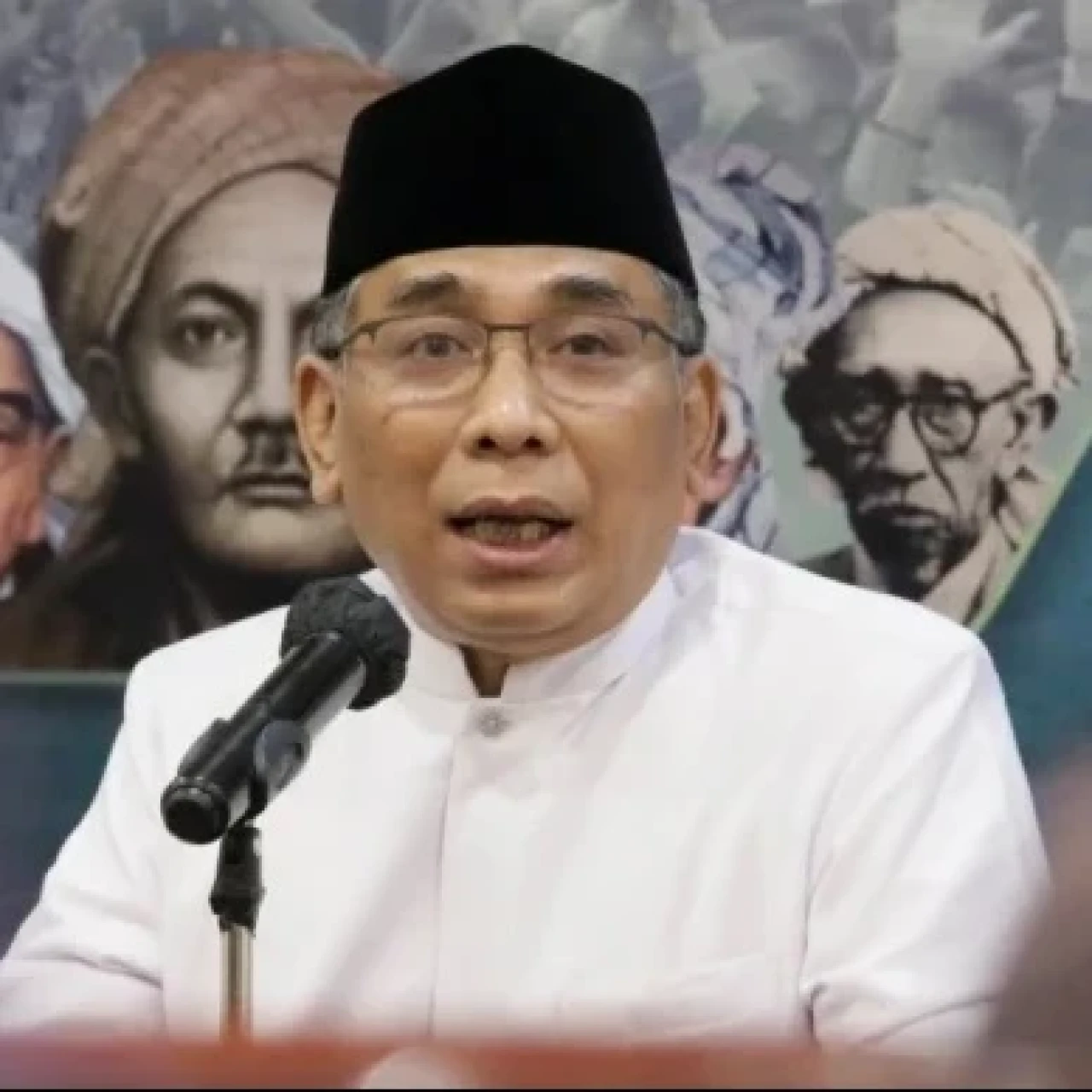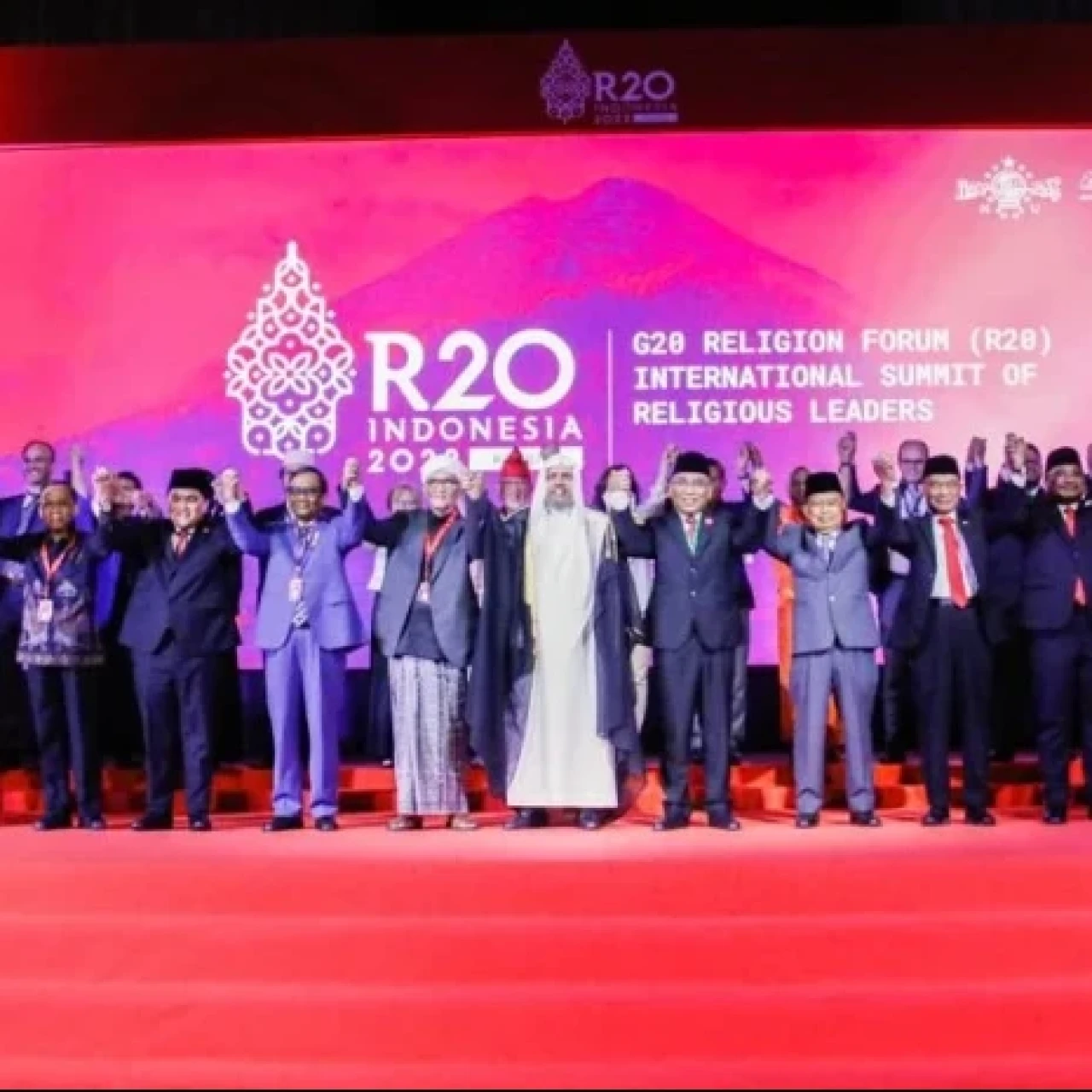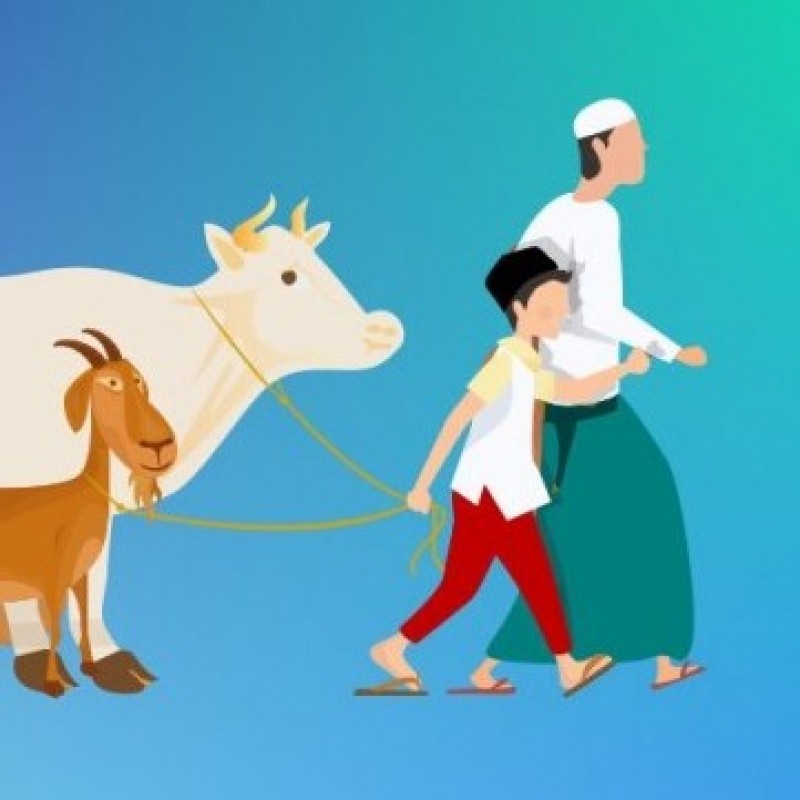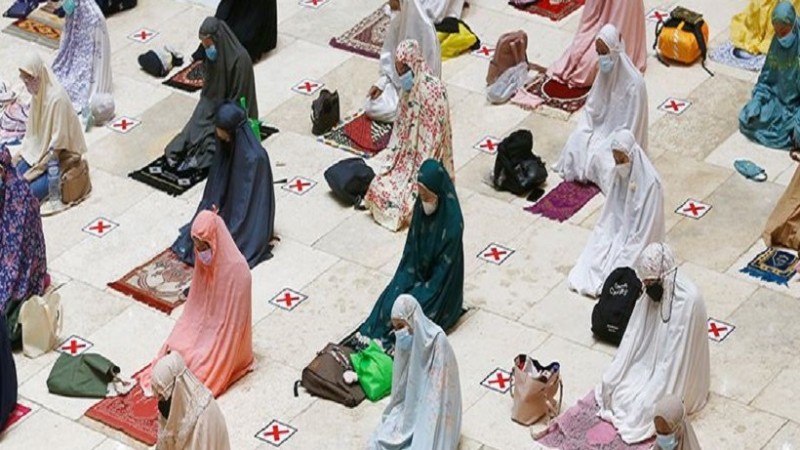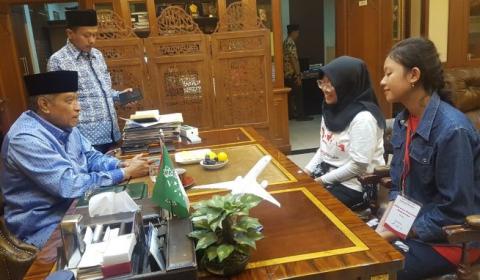By KH Yahya Cholil Staquf
Nusantara is a term used to describe the vast Indonesian archipelago that stretches across the tropics from Sumatra in the west to Papua in the east. It is a region characterized by immense geographic, biological, ethnic, linguistic and cultural diversity. The word “nusantara” first appeared in Javanese literature in the 14th century, and referred to the enormous chain of islands that constituted the Hindu-Buddhist Majapahit Empire.
<>
Nusantara is a compound noun derived from ancient Javanese: nusa ("islands") and antara (“opposite” or “across from”). In his book “Negarakertagama,” written circa 1365, the author and Buddhist monk Mpu Prapanca described the territory that comprised Nusantara, which included most of modern Indonesia (Sumatra, Java, Bali, the Lesser Sunda Islands, Kalimantan, Sulawesi, part of the Malukus and West Papua), plus a substantial portion of the territories that now comprise Malaysia, Singapore, Brunei and the southern Philippines. As of 2010, this region was inhabited by approximately 1,340 distinct ethnic groups speaking nearly 2,500 different languages and dialects, according to Indonesia’s Central Bureau of Statistics.
Indonesia’s national motto – Bhinneka Tunggal Ika – was coined during the so-called golden age of Majapahit. Bhinneka means “different” or “diverse.” The Sanskrit word “neka” (like the Latin term “genus”) signifies “kind,” and is the etymological antecedent of the commonly used Indonesian word “aneka,” which means “variety.” Tunggal means “one.” Ika means “that.” Thus, Bhinneka Tunggal Ika may be literally translated as “Variative (ie, different) Yet One.” Within the context of modern Indonesia, this implies that despite enormous ethnic, linguistic, cultural, geographic and religious differences, the people of Indonesia are all citizens of a single, unified nation – the Unitary State of the Republic of Indonesia.
Yet the connotations of this motto are far more profound and universal in their significance than may appear at first glance. In fact, the concept, historical precedent and spiritual reality of Bhinneka Tunggal Ika may serve as a model for establishing a true alliance of civilizations, capable of addressing a wide array of dangers that threaten contemporary humanity.
High among those dangers, of course, is the Islamic State of Iraq and Syria, known as ISIS.
The phrase Bhinneka Tunggal Ika first appeared in an ancient Javanese kakawin (book of poetry), known as “Kakawin Sutasoma.” Composed in the 14th century by Mpu Tantular, this renowned book promotes mutual understanding and tolerance between Buddhists and Hindu followers of Shiva. The phrase appears in chapter 139, verse 5:
RwÄneka dhÄtu winuwus Buddha Wiswa,
Bhinnêki rakwa ring apan kena parwanosen,
Mangka ng Jinatwa kalawan Åšiwatatwa tunggal,
Bhinnêka tunggal ika tan hana dharma mangrwa.
It is said that Buddha and Shiva are two distinct substances (or entities). They are indeed different, yet it is impossible to regard them as fundamentally different (when one apprehends the underlying Unity of existence).
For the essence (truth) of Buddha and the essence (truth) of Shiva is One (tunggal). (The diverse forms of the universe) are indeed different, yet simultaneously One,
For Truth is indivisible
It is important to note that the civilizational greatness attained in the East Indies archipelago (Nusantara) did not begin with the Majapahit dynasty. Archaeological remains and other historical records indicate that complex sociocultural systems had developed within Nusantara from at least the third century. And long before that, intense economic and cultural interchange had occurred, both among local populations within Nusantara and with the outside world, especially India and China. An economic boom stimulated by maritime trade is evident from at least the first century (Paul Michael Munoz, 2006), with an abundance of ancient Roman gold coins found in Nusantara attesting to the remarkable scope, and extent, of such trade.
Given the remarkable ethnic, linguistic and cultural heterogeneity of the region, and the dynamic interactions between members of different groups, Nusantara societies naturally developed a highly pluralistic outlook on life. Cultural and religious influences from abroad were quickly assimilated by Nusantara’s highly adaptive, and flourishing, civilization. Thus, Mpu Tantular’s observation regarding Bhinneka Tunggal Ika did not emerge from a void. Rather, it expressed the collective wisdom of Nusantara, which had developed over the centuries and was already deeply rooted within the culture of a wide geographic region that lay at the crossroads of many ancient civilizations.
The value of this single quatrain of poetry from “Kakawin Sutasoma” is that it encapsulates – and helps us to comprehend – the worldview embraced by the Nusantara civilization as a whole, which underlies its remarkable religious pluralism and tolerance. Namely, that the universe arises from a single source, which constitutes the “spiritual essence” of all things. From this perspective, cultures and religions that appear to be widely divergent are in fact like colors emerging from a prism, derived from a single source of light.
This profoundly spiritual worldview emerged spontaneously among the people of Nusantara. Given the enormous cultural and linguistic diversity present within the East Indies archipelago, it was impossible to create, much less enforce, the relatively high degree of cultural, linguistic and/or religious uniformity characteristic of some regions of the world. The people of Nusantara concluded that they must accept the reality of this diversity, which confronted them on a daily basis, and hone their ability to coexist peacefully with others. As a result, they came to view cultural and religious differences as inevitable, and developed a civilization that emphasized attaining a state of harmony as the most effective way to maintain order within a complex social and cultural environment.
The arrival of Islam
From the seventh to the 10th centuries, Islam established deep roots in the Middle East, from Spain and Morocco to western India, giving birth to a new civilization and countless works of genius. These territories underwent a gradual process of Islamization, and Arabization as well, in the Levant, Mesopotamia and the northern coast of Africa, as a result of having been conquered and subjugated by Muslim rulers.
In other words, military conquest was the essential prerequisite, and catalyst, for the development of classical Islamic civilization. Islam quickly attained military and political supremacy in the Middle East, which enabled Muslim rulers to enforce order and manage the community at large in accordance with religious doctrine and dogma. It was precisely in this atmosphere that the classical teachings (ie, interpretation) of Islam evolved, including aqidah (the system of Islamic doctrine, as related to Divine teachings); fiqh (the vast body of classical Islamic jurisprudence); and tasawwuf (Islamic mysticism, through which Muslims explored the spiritual dimension of life).
Although Muslims’ interpretation of Islamic doctrine, dogma, law and spirituality was inevitably diverse, it was the responsibility of Muslim rulers (ie, conquerors) to establish order, which in turn created a powerful impetus to establish uniformity of religious doctrine and law, at least within an “acceptable” set of parameters. Thus, for purely political reasons, the question of religious “authenticity” became a central topic in the heated debates that often occurred among various competing schools (ie, interpretations) of Islam. Given these circumstances, it is no surprise that fiqh (often conflated with Shariah) dominated such discourse, due to the central position of law in establishing order and governing the relationship between various members of society.
What about Nusantara?
Given the paucity of contemporaneous historical records, no convincing explanation has been provided to date of the precise mechanisms through which Islam penetrated Nusantara. A number of records indicate that Islamic kingdoms were established in Nusantara from the late 13th through the 15th centuries (including Jeumpa, Tambayung and Malacca), prior to the process of Islamization gaining decisive momentum in Java with the establishment of the Demak Kingdom.
Notably, virtually all academics agree that Islam spread throughout Nusantara through a “diffusive” and “adaptive” process that, for the most part, eschewed military conquest. Like Hinduism and Buddhism before it, Islam “dissolved” and was gradually absorbed into the prevailing local civilization of Nusantara.
In distinct contrast to other regions of the Muslim world (eg, from Spain to India), there is no record of the application of fiqh as a comprehensive legal system within the Islamic kingdoms of Nusantara. The resolution of legal issues (such as crimes and disputes) was generally handled through the application of customary law, or adat, which differed from region to region. For example, to this day the Minangkabau people of West Sumatra retain a matrilineal system, distinctly opposed to the patrilineal system employed in mainstream fiqh interpretation of family law. And yet, this Minangkabau adherence to adat is accompanied, smoothly and unselfconsciously, by a strong self-identification with Islam on the part of the Minang people as a whole. Indeed, over time local customs (adat) throughout Nusantara have become flavored, or colored, by the influence of Islam. Yet there has never been any systematic and comprehensive application of “Islamic law, as defined by the mainstream of classical Islamic discourse, in public affairs.
In other words, Islam was forced to “surrender” to the prevailing local customs, and power, of Nusantara's highly pluralistic civilization. To cite yet another example from West Sumatra, the Islamic law of inheritance, which favors males, was subordinated to – or at least compromised with – Minang customary law, in which land and houses are bequeathed through a matrilineal line. Islam thus experienced a softening of its “original discipline.” Likewise in Java, where many traditional rituals have been adopted as “part of Islam” after being adjusted to a lesser or greater extent through a steady process of assimilation.
The Islam that learns
Within the regions dominated by “classical Islam” – the Middle East, North Africa, the Persian and Turkish cultural basins and much of South Asia – Islam arrived in the form of a “judge” by subduing, imposing order and adjudicating disputes. In Nusantara, Islam arrived as a guest and was later adopted into the family. In turn, Nusantara Islam developed a distinct character, which is quite different from that manifested by Islam in other regions of the Muslim world.
In the Middle East, for example, Islam is commonly viewed as a socioreligious-political system that is “complete,” “final” and authoritative, offering human beings no choice but to comply with the dictates of that final construction. In Nusantara, on the other hand, Islam is in a state of constant learning. For more than 600 years, its leading practitioners have carefully studied social reality, in order to ascertain the most elegant means to achieve their goals, while maintaining harmony within a diverse and highly pluralistic society.
Although Nusantara Islam is distinct from the Middle East model, this does not mean that it constitutes any form of heresy. Prominent ulama (religious scholars) and other Muslim leaders within the East Indies archipelago have been quite deliberate and prudent in ensuring that the manner in which they practice and promote Islam adheres to the fundamental teachings of the Islamic paradigm, follows its intellectual traditions and maintains an inseverable bond to the established references of classical Islam, anchored in the teachings of authoritative mujtahid (leaders within various schools of Islamic thought) from the earliest generations who lived in the Middle East. In other words, the model of Nusantara Islam is an absolutely authentic stream of Sunni Islam, as preserved and taught by authoritative ulama.
The task of ensuring the authenticity of Islamic teachings, while maintaining harmony with the prevailing social reality, has never been easy. Nusantara’s ulama have traditionally utilized two principal strategies to accomplish this.
The first is to ensure a balanced focus of attention upon the spiritual dimensions of Islam (tasawwuf), so that the animating spirit of religion, as a source of universal love and compassion, is not neglected when issuing judgments (fatwa) involving the formal/exoteric norms of Islamic law.
Nusantara’s ulama introduced Islamic mysticism (tasawwuf) and a variety of spiritual brotherhoods (tariqa) established by their predecessors in the Middle East to local communities throughout the East Indies archipelago. Their teachings on Islamic mysticism elicited an enthusiastic response from locals and soon became the prevailing image/face of Nusantara Islam.
In fact, mysticism became the primary attraction of Islam to local communities throughout the region, for it is compatible with the long-established mystical traditions prevalent throughout Nusantara. In a Strategic Review article titled “Indonesia’s Big Idea: Resolving the Bitter Global Debate on Islam,” authors Kyai Haji A. Mustafa Bisri and C. Holland Taylor described the principal elements of Islamic mysticism, which have become integral to the spiritual orientation/cultural heritage of Nusantara and form its basic character.
Two brief citations may serve to illustrate the manner in which Mpu Tantular’s concept of Bhinneka Tunggal Ika parallels the worldview held by the renowned Persian poet and mystic Jalal ad-Din Rumi (1207-1273):
The difference among men results from the outward name; when you reach the inner meaning you reach peace. Oh marrow of existence! It is because of the perspective in question that there is a difference between a Muslim, a Zoroastrian and a Jew. … Every prophet and every saint hath a way, but it leads to God; all the ways are really one.
The Spanish-born Sufi Ibn ’Arabi (1165-1240), who is often referred to as Shaykh al-Akbar, or The Great Master, expressed a similar view when he wrote:
My heart has become capable of every form; it is a pasture for gazelles and a cloister for Christian monks, and a temple for idols, and the pilgrim’s Ka'ba, and the tables of the Torah and the book of the Koran. I follow the religion of Love, whichever way his camels take. My religion and my faith is the true religion.
Significantly, Jalal ad-Din Rumi and Ibn ’Arabi are two of the most authoritative figures within the realm of Islamic spirituality and mysticism.
It is clear that these spiritual insights provide “doctrinal legitimacy and protection” that not only authorizes but actively encourages the participation of Muslims in the affairs of a highly pluralistic society. This profoundly spiritual worldview also provides a psychological and emotional safety valve for Muslims, who might otherwise be disturbed by others’ rejection of Islamic proselytism (da‘wa) or their reluctance to fully adopt the formal teachings and rituals of Islam. Due to their understanding of Islam as an “offer of salvation,” Nusantara ulama consider proselytism as an attempt to “save” others, which will only succeed if the persons concerned are willing. If not, the proselytizer has no responsibility for the decision of others to choose a different path in life.
The second strategy referenced above is to position Islam as an equal citizen within a highly pluralistic society, rather than as the beneficiary or carrier of a violent, supremacist ideology. Nusantara ulama generally believe that public affairs should be managed with the consent of all parties concerned. In Nusantara, Muslim leaders have rarely been burdened by the expectation or demand to impose Islamic law on others.
Nusantara ulama creatively seek “space for maneuver” in regard to Shariah, to remain closely involved within the wider social arena, without abandoning their affiliation with, or practice of, Shariah itself. In the case of the Minangkabau tradition cited above, ulama utilize the Shariah-sanctioned practice of allowing the distribution of inheritance in accord with any consensus reached among heirs. Thus, local customs (adat) that might otherwise conflict with fiqh (Islamic law) are positioned within the “realm of consensus.”
This approach to Islamic law has served as the basis for Nusantara ulama to accept the secular state of the Republic of Indonesia and reject the establishment of a so-called Islamic state, or caliphate. Because Islam arrived in Nusantara as a respected guest and not a conqueror, Muslims generally accept the fact that they are not the only party destined to determine the fate of society as a whole. Nusantara’s political systems – and particularly the relationship between state and religion – have traditionally reflected consensus among all the stakeholders concerned. Even Islamic kingdoms such as Jeumpa, Tambayung and Mataram have traditionally been regarded as the product of consensus among adherents of traditional law (adat), rather than the embodiment of a formal “Islamic state.”
In general, it may be said that the ability of Nusantara ulama to adapt to social reality without abandoning their own adherence to Shariah stems from the fact that they have mastered Shariah, not merely in the sense of compilations of Islamic jurisprudence but as profound legal theory. Islam teaches that the law must be based upon Divine guidance.
But Islam also teaches that in providing guidance, God’s purpose is never the pursuit of His own interests. God provides guidance for the benefit of humanity. Thus, anything beneficial to humanity is in harmony with God’s “objective,” and the purpose of Shariah itself.
Purification
Regardless of their ethnic or geographic origin, conquerors generally have similar anxieties and behavioral tendencies as they seek to promote their own self-interest. The most fundamental of these impulses is to ensure the perpetuation of their rule, in the face of overt or latent resistance from those who have been subjugated. Thus, it is logical that conquerors tend to be repressive.
Classical Islamic law (fiqh) is replete with such repressive dictates. One of the more dramatic examples may be found in the book “Kifaayat 'l Akhyaar” (“The Satisfying Selections”), written by Taqiyudin Abu Bakr bin Muhammad al-Husaini al-Husni in the 14th century. Among the various dictates of Islamic law cited in this book is an explicit requirement that Muslims discriminate against non-Muslims.
In Nusantara, Islam never had to struggle beneath the burden of such injunctions. In the absence of foreign conquerors, there was no threat of resistance to a so-called foreign religion. Thus, within the 16th century Islamic kingdom of Demak, the sultan’s chief religious adviser, Ja’far Sadiq Azmatkhan, popularly known as Sunan Kudus, forbade Muslims to slaughter cows within the territorial limits of Kudus (in today’s Central Java Province), due to his respect for Hindus’ belief in the sanctity of the animals.
Another early propagator of Islam in Java, Raden ’Ainul Yaqin, popularly known as Sunan Giri, was the main arbiter of disputes among his contemporary ulama in regard to Islamic law because of his profound expertise in the field of Shariah. Yet the best known of Sunan Giri’s teachings, which have become indelibly associated with his memory, are his teachings about universal virtues, which are sculpted upon his tomb in East Java:
Wenehana mangan marang wong kang luwe.
Wenehana sandangan marang wong kang wuda.
Wenehana payung marang wong kang kudanan.
Wenehana teken marang wong kang wuta.
Give food to those who are hungry.
Give clothes to those who are naked.
Give shelter to those caught in the rain.
Give walking sticks to those who are blind.
In general, the Islamic narratives that have long thrived in Nusantara are oriented toward the spirit, rather than the letter, of the law. Fiqh (Islamic jurisprudence, as an instrument to maintain order) was not considered to be urgent because preserving public order was not the most crucial challenge facing local societies or their rulers. A strong cultural disposition to seek harmony served as the primary foundation, and guarantor, of social order. In such circumstances, detailed and sophisticated legal instruments were not required, nor was there any need for coercion to enforce such dictates. These circumstances allowed the proponents of religion to delve deeply and unveil the core of religious teachings, namely spirituality and ethics.
Harmonious civilization, compassionate religion
For nearly 2,000 years, Nusantara’s civilization has constituted a unique experiment and direct experience of the ability of human beings to live peacefully amid diversity. It is about prioritizing harmony with others, above one’s own self-interest; spiritual self-confidence, which allows one to experience and embrace new ideas and teachings; seeking nobility of character, rather than purely material achievements; knowing that differences of opinion (and religion) are not harmful.
Nearly all of the world’s religions have come to Nusantara without encountering resistance. The people of Nusantara are free to embrace any religion that suits them, and to abandon said religion without harm if and when they desire to do so. And everyone who becomes a citizen within the communal life we share is part of an indivisible unity, regardless of what superficial differences may exist: Bhinneka Tunggal Ika.
Within the civilization of Nusantara, Islam found its “heaven.” Islam was not burdened with worldly concerns such as rebellion or other internal and external threats. Islam was blessedly free of being instrumentalized to serve as a vehicle for advantage in conflict, because in Nusantara religion has rarely been regarded as a worthy cause for quarrel. Islam thus enjoyed the widest possible opportunity to engage in relaxed dialogue, with social and historical reality.
Within this nonpoliticized atmosphere, Islam has proved more successful at grounding its core teachings in public life than in many parts of the world. This is because of Nusantara Islam’s willingness to empathize with others and engage in dialogue with reality, rather than seek to impose one’s own understanding of reality upon others by force. The success of Nusantara Islam also stems from its conviction that religion should serve as a path to enlightenment for individual souls, and that Shariah should serve to promote the well-being of humanity, rather than function as a tool of repressive authority. In Nusantara, Islam was free to fulfill its mandate in the Koran: to become a source of universal love and compassion.
In our present era, both the civilization of Nusantara and the variant of Islam it has long nurtured are in a state of decline. This is due to a wide range of pressures stemming from globalization, including the spread of a highly politicized and supremacist understanding of Islam. The memories I have tried to evoke in this essay – of Nusantara’s glorious civilization, and its unique expression of Islam – may be rightly viewed as a civilizational plea for help.
Yet it is simultaneously a reminder and an offer to the world – an invitation to imbue social, cultural, political and religious life with love and spiritual beauty. It is a profound love and beauty that lies at the heart of our vision of an alliance of civilizations and stands within our grasp, should we elect to transform this vision into reality.
KH Yahya Cholil Staquf is secretary for political and international affairs for the supreme council of Nahdlatul Ulama, Indonesia’s largest Islamic organization. He previously served as press secretary for Abdurrahman Wahid, the late Indonesian president and NU leader.
Terpopuler
1
Khutbah Jumat: Ramadhan dan Kesempatan yang Tidak Selalu Terulang
2
Innalillah, Ulama Mazhab Syafii asal Suriah Syekh Hasan Hitou Wafat dalam Usia 83 Tahun
3
Khutbah Jumat: Ramadhan, Melatih Sabar, Memperkuat Syukur
4
Kultum Ramadhan: Lebih Baik Sedikit tapi Istiqamah
5
Keluar Mani yang Tidak dan Membatalkan Puasa
6
Khutbah Jumat: Tiga Kebahagiaan Orang Puasa
Terkini
Lihat Semua




